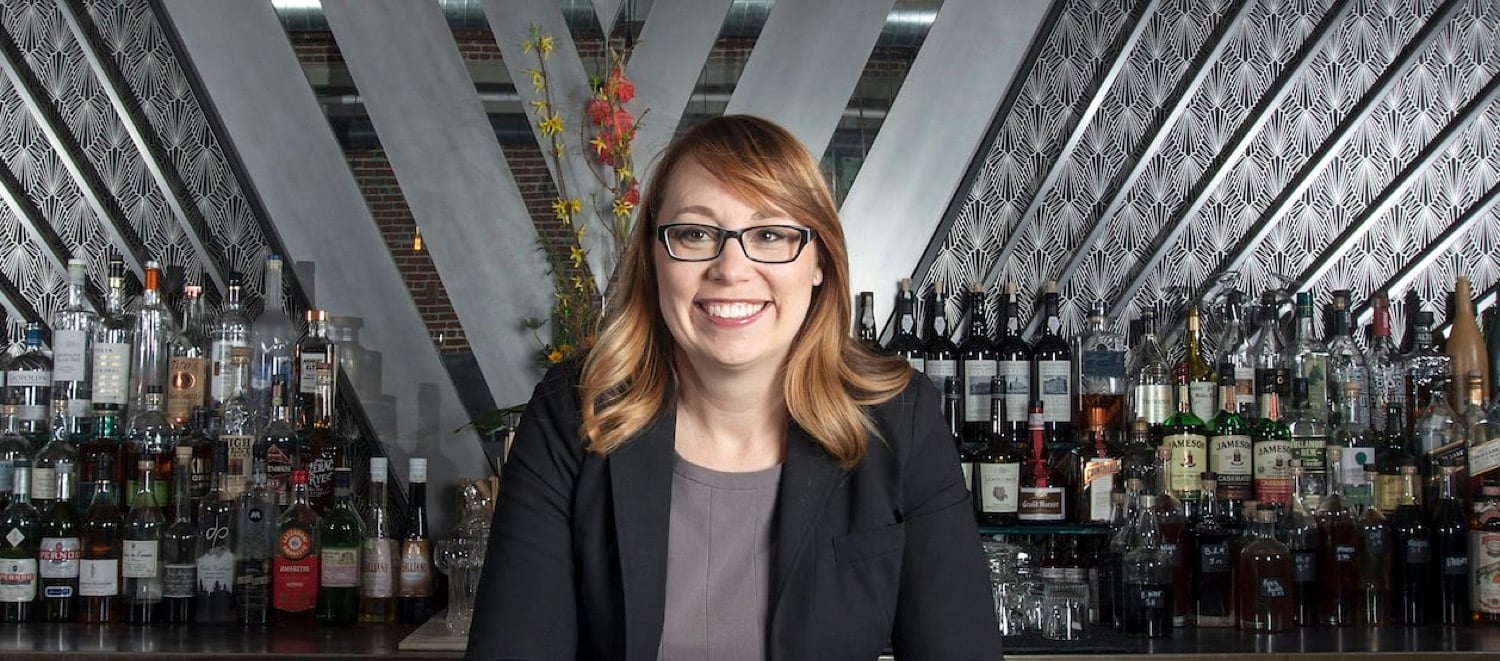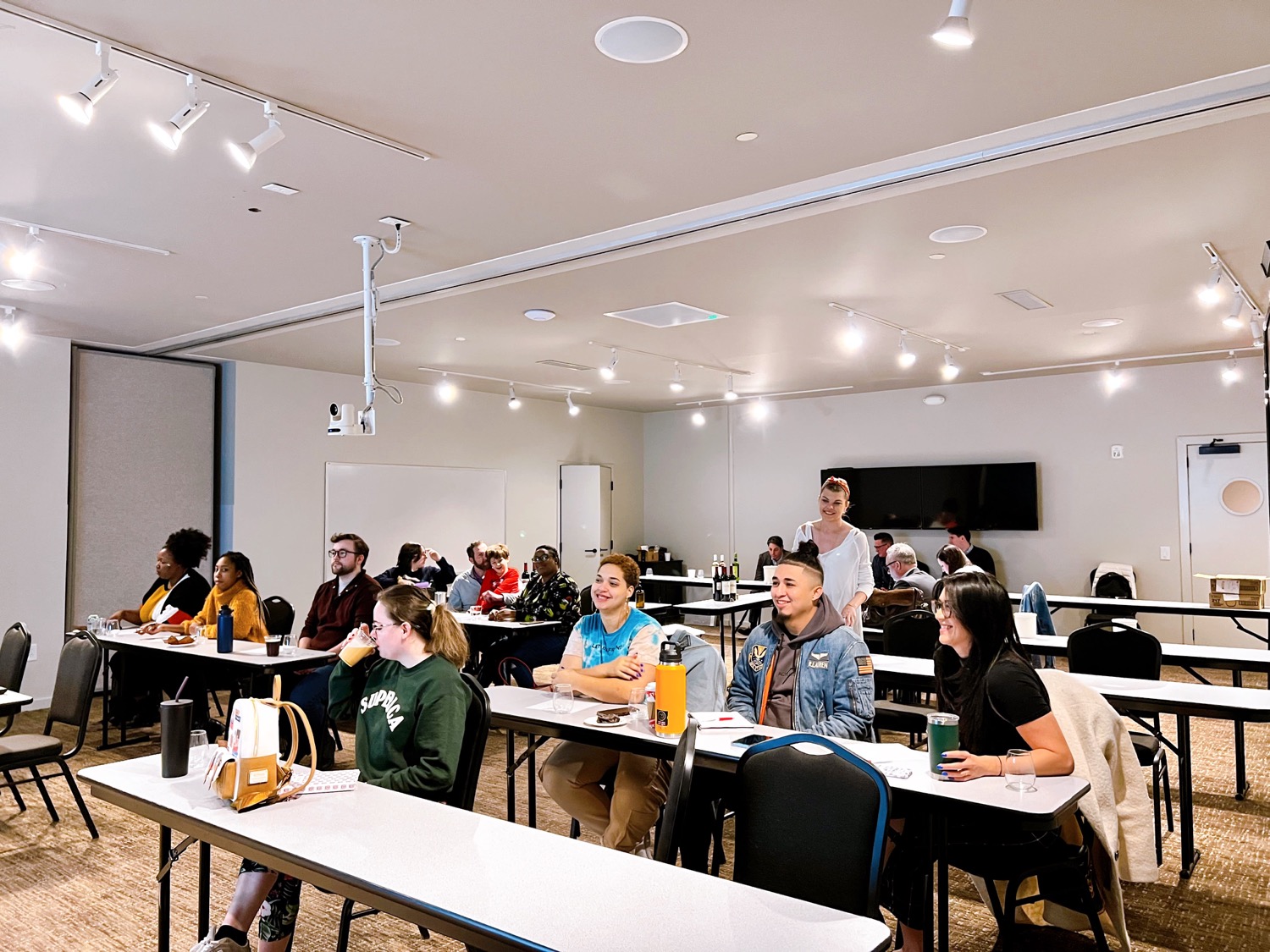This past March, Denver-based restaurant and jazz club Nocturne celebrated a major milestone – eight full years of operation.
“I always joke with people that restaurant years are kind of like dog years – eight years is similar to 40 years in any other industry,” says co-owner Nicole Mattson. “We've learned a ton of lessons along the way, and it’s really the old adage of, ‘What doesn't kill you makes you stronger.’”
As for many restaurants, the pandemic forced Nocturne to shake up some of its business strategies. But Mattson says they’ve been making operational tweaks since day one to ensure the success of the venue. She’s also an ardent believer in perseverance and grit, calling those attributes as the “make or break” for entrepreneurs of any kind.
“If you don’t want to get out of bed in the morning, you still do, because you have people relying on you,” says Mattson. “For us, that’s employees, musicians, investors, and there’s just a grittiness that has to happen, even on those scary days in the middle of the pandemic or those days you just don’t feel like it.”
We chatted with Mattson to learn more about what she attributes to Nocturne’s success and how the business has evolved, as well as her top takeaways from the past eight years.
When you reflect over the years, what would you consider your biggest learnings as a restaurant owner?
We learned one of the biggest lessons early on with staffing, team, and culture. You’re going to have these ebbs and flows of desperation hires, but any time that happens, it puts the culture at risk. So we’ve gotten a lot better and not succumbing to the immediate gratification of just filling a hole in the schedule. My co-owner, assistant general manager, or many times, me, will step in and cover the host stand or run expo. It’s something you do hopefully for a short amount of time to avoid subjecting the team to a bad fit.
It’s important to figure out your mission and values and find questions that get at that in the interview process. When you hire people whose personal missions and values somehow overlap with your Venn diagram, you can start from a place of trust. At Nocturne, that’s often a love for the arts. We’ll get a line cook who's also a guitarist on the side or a host that’s also studying vocal jazz. It’s not necessarily something that we’re screening for, but it becomes one of those lightbulb moments during an interview.
Are there any other elements of your staffing strategy that have evolved since opening?
We started out with just myself and husband as the sole managers, and in hindsight, I would’ve added an assistant general manager or general manager sooner. They can be more active with the staff than a business owner who’s having to do all of the month-end work, filing taxes, renewing insurance, and all of what goes into the inner workings of a business. You don’t always realize how much time that’s taking from being on the floor and with staff.
Nocturne is not just a restaurant, of course, but a prominent Denver jazz club, and post-pandemic, we’ve seen many people eagerly seeking out experiential dining experiences. I’m curious if you’ve seen a shift in customer behavior recently, and if that’s caused you to adapt your operations in any way.
It’s a good question. During the pandemic, when restaurants and venues were able to reopen at 25% capacity, we did make a conscientious shift [to our operations]. We knew we weren’t going to break even at that capacity but also wanted to give the jazz community an opportunity to go back to performing. That’s the livelihood for a lot of musicians.
But as part of that, we wanted to maximize the spend per person. Before, you could have a guest that watched two hours of music and maybe drank one beer. So we switched to doing a dinner and show package, where people are purchasing the live music as well as a three-course dinner. And that was a great strategic decision. We haven’t looked back since.
It inherently created experiential dining. If you're going to make a reservation at Nocturne now, you’re committing to the full experience. We’ve become a solid destination for birthdays, anniversaries, job promotions, and all sorts of celebrations. And I do think people want that – an experience that goes well beyond takeout and Netflix. Our demand has certainly not decreased. We just got done with our busiest month on record.
Are you able to share some insights into what your cost structure looks like since switching to that model?
The package is $85 per person on Wednesdays, Thursdays, and Sundays, and $95 per person on weekends, and we’ll up that for days like Valentine’s Day. We run two seatings per evening and generally have around 70 to 80 guests per set. Then we sell bar seats separately for a music fee, and people can order a la carte.
We try to structure our model in a way that we can pay the bands a really equitable rate and also make sure that we have a good chunk reserved for food costs. We run about 30% to 33% on food cost, and then music costs vary by the size of the bands. We also have a 22% service charge that helps supplement wages for both front and back of house.
Are there any other major, pandemic-driven changes that you plan to keep long term?
Having additional grace with staff when they need time off. It’s easy to be an old-school restaurateur, where you tell people, “It doesn’t matter how bad things are, you should still come in for your shift.” But if you don’t feel good, you go home, and we’ll figure out how to adapt, even if it means closing off a section.
That’s true for mental health as well. There was a big gap industry wide in having empathy around people’s health. Hospitality is a very fun industry, but we also have to give a lot of empathy to guests and that can cause burnout. It’s important that people get some time to themselves to reset.
Do you offer specific health benefits, or other benefits, to staff? And if so, how do you weigh those investments as part of your current business model?
Full-time status is if you work 25 hours or more, and we offer sick pay, a matching 401K, and healthcare where we pair for half and they pay for half. We have an employee assistance package, which provides three free therapist sessions and also some financial and legal assistance. We pay $30 per month for a wellness reimbursement that they can use on things like a gym membership or yoga classes. We give up to $500 a year for educational reimbursement, so a lot of our front of house staff will do training through The Court of Master Sommeliers or WSET.
Our goal is to do an all-staff field trip every other year. This past week, we did our second to New Orleans for a healthy dose of jazz history, food, drink, and all the culture that city has to offer. In 2021, dined around Portland and did Oregon’s wine country.
It might not always make sense on paper, but it does pay off. If you’re operating out of a sense of abundance, it’s going to create a win-win between you and staff in the long-term. If you’re operating out of a sense of scarcity, you’re always going to be treading water. The longevity of employees, the bonding that the trips create, and the mental health of having some financial stability – those are all factors you can’t put a dollar figure around but that definitely make an impact.
As margins tighten across the industry, do you feel like it’s become essential for restaurants to have an additional revenue stream, whether it be live music or otherwise?
The most successful restaurants I’ve seen have always had another income line. Maybe your somm’s teaching wine tasting classes or your bartender’s teaching cocktail classes or you’re leasing out your kitchen in the morning to a bakery. There’s a thousand ways to out-smart the profit margin of food and beverage.
We do monthly cocktail classes, where bartenders teach about a classic cocktail or certain technique. We also lease our kitchen on our closed days as a donation to the Preservery Foundation, an organization that makes hot meals for people experiencing homelessness. It’s not a revenue line, but it’s another way to give back to the community.




